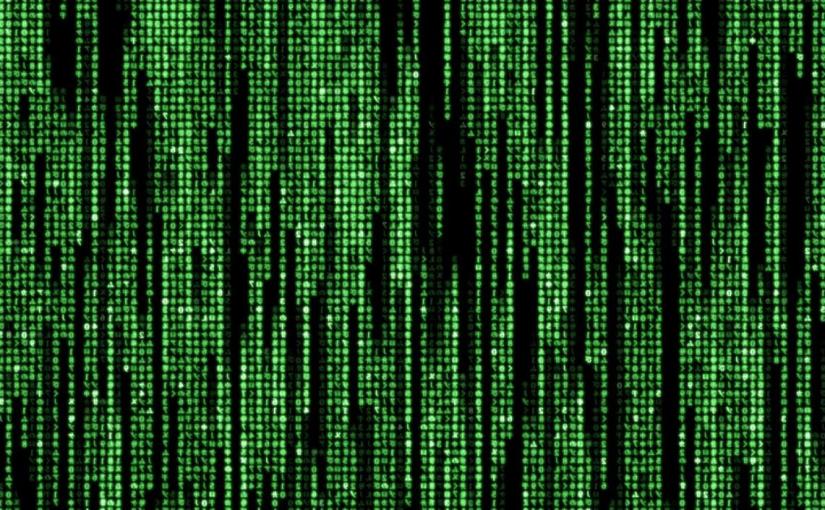Here, I am using the terms used for certain generations very loosely – I do not think the categorization by birth-years is a good way to classify a generation. Within a generation, at its extreme ends, there are sharp differences in experiences and attitudes; also the same generation in a developing country would have had a very different kind of exposure to technology compared to its developed world counterparts, and it is only the recent generations (late millennials and Gen-Zs) where the tech-exposure, ideas and lifestyles have begun to converge globally.
For me, personally, The Matrix Trilogy is that one story which is an important shared experience between the previous generation and mine. The other might be the TV show ‘Friends’, but that is the blue-pill and we are not about blue-pills here. So, the Matrix. Almost all Gen-Xers have seen the movie, at a time right after when the common person became reasonably comfortable with the internet; and most millennials have grown up watching their older siblings and cousins watch the movie, only to watch it again years later and understand that there was much more to it than good CGI and benchmark-setting action sequences. The deep cultural impact of these films still rings fresh with increasing relevance even after two decades or so. But, since millennials were the first generation which truly owned and shaped the internet culture (I will write about it in detail later), I think that they also had a better understanding of this film and its meaning. While for Gen-Xers, it is just a movie that they watched and remember fondly; it is the millennial who really lives this movie everyday.
All of the dissatisfactions of the millennial – his outlook towards society, humans, money, existence, relationships, entertainment, humor, politics etc. is the very ideological battle between Agent Smith and Neo happening within his mind, now even more isolated ‘from the real’ thanks to his 4G phone. Though such a conflict for a generation is nothing new as there have always been the norms and the countercultures for every time – but, both ideas in the past dreamt of and fought for a better tomorrow. The millennial, like the battling forces of the Matrix in his head, seems to be waiting for the end; as he or she sees society transform through the technologies he once harmlessly learned, bonded with, quickly mastered and now improves for a living (with his older Gen-X sibling up in the C-suite, ofcourse). It is a bipolar existence for a generation with an end-of-the-world zeitgeist. The Gen-Xer also knows the technology well, but he largely views it from a financial and optimization perspective. And that is understood, because for him in his youth it was still about a box which he could program, control and maybe fill spreadsheets with. The tech-shock which older generations experienced when going from analog to digital was so sudden that anything beyond their understanding could as well have been all lumped together as magic – for them, there was no difference between a dial up, a fiber optic or a bluetooth connection. It is the rapid small increments which the Gen-Xer experienced but failed to see. But the millennial sees that because he was the first one to use the internet to substitute connections in the physical world with ones in the digital flatland – it was the first time social fabric was cloned there. But with that, the millennial has also readily inherited and absorbed the thoughts of the radical Gen-Xers – who saw the larger impacts of this technology on society, beforehand and as it was occurring. What was viewed as an extreme or paranoid view towards technology back then is an understood and accepted reality now, even when you comply with it. The average and oblivious Gen-Xer becomes aware of the impacts of this technology only and only after becoming a parent – a conversation which he had shut himself off from in the best of his thinking years. You see that awareness show up briefly in his face when his young one throws a tantrum in public to be allowed to use the tablet or the phone. The awareness usually fades away as quickly as it came, because he cannot connect the dots, or worse – he is incapable of viewing the future as grimly as the millennial does.
It will be interesting to see the shape our society takes in the coming decades – with its belligerent machine intelligence shaping wars and relationships, and surveillance which only death can avoid; all of this set against the backdrop of rapidly changing climate, increasing population and a pulsating debt-bubble of an economy. Millennial anxieties have mostly come true so far, and I must repeat that the millennial sees the end. Or, maybe I am over-analyzing an already overanalyzed work of fiction. Yet, I am sure that people in the future will come back to this movie again and again as the one which defined a crucial crossover period of mankind – regardless of how our future turns out to be. That, I must say, is a great cultural heirloom to share with one’s older sibling.
